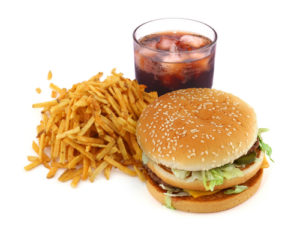 The American Academy of Pediatrics (representing 67,000 pediatricians) has come out with a statement expressing serious health concerns about the Food and Drug Administration's (FDA) lax regulation of chemicals added to food and food packaging - such as additives, BPA, colors, flavors, nitrates, nitrites, etc. They also list ways that this problem could be fixed (Congress needs to pass legislation!), and also give some steps on how people can lower their exposure to these chemicals.
The American Academy of Pediatrics (representing 67,000 pediatricians) has come out with a statement expressing serious health concerns about the Food and Drug Administration's (FDA) lax regulation of chemicals added to food and food packaging - such as additives, BPA, colors, flavors, nitrates, nitrites, etc. They also list ways that this problem could be fixed (Congress needs to pass legislation!), and also give some steps on how people can lower their exposure to these chemicals.
A panel of experts representing the group issued both a technical report and a statement which talked about the scientific evidence (which grows yearly) against such compounds such as bisphenol A (BPA), phthalates, perfluoroalkyl chemicals (PFCs) used in grease-proof paper, certain colors (dyes), and preservatives. These chemicals can enter into the body and cause harm or health problems, for example by disrupting crucial biological processes such as the endocrine (hormone) system and immune system. A number of these chemicals are thought to mimic or suppress natural hormones - they are endocrine disruptors. Children and developing fetuses are especially vulnerable to long-term effects. They also expressed concern with nonpersistent pesticides.
Many of the chemicals currently in the food supply "have not been tested at all, while others have not been tested for endocrine disruption or their impact on brain development, and their effect on children's health is still unknown," said Trasande, the paper's lead author and an associate professor of pediatrics at New York University School of Medicine in New York. This is because the old required tests are too simplistic, too crude, using old out-dated technology and knowledge.
The American Academy of pediatrics points out in the statement that currently: "more than 10 000 chemicals are allowed to be added to food and food contact materials in the United States, either directly or indirectly, under the 1958 Food Additives Amendment to the 1938 Federal Food, Drug, and Cosmetic Act (FFDCA)". Many of these were grandfathered in for use by the federal government before the 1958 amendment, and an estimated 1000 chemicals are used under a “generally recognized as safe” (GRAS) designation process..." Whew.... so many chemicals...
Is there a problem with GRAS? Of the approximate 1,000 GRAS compounds added to food and food packaging, the large majority were designated as such by either the company that manufactures them or a paid consultant. (Do you see a problem here? The conflicts of interest are huge - the fox is guarding the chickens.)
How can you personally lower your exposure to all these chemicals? 1) Eat as many fresh fruits and vegetables as possible, and avoid eating canned foods (the can lining has BPA or other just as worrisome chemicals - bisphenols), 2) Avoid processed meat, especially during pregnancy (nitrates, nitrites, etc), 3) Avoid microwaving food or liquids in plastic containers (chemicals leach out) - including infant formula and breastmilk, 4) Avoid putting plastics in the dishwasher (chemicals leach out), 5) Use alternatives to plastic such as glass and stainless steel, 6) Avoid plastics with recycling codes 3 (phthalates), 6 (styrene), and 7 (bisphenols) unless plastics are labeled as “biobased” or “greenware,” indicating that they are made from corn and do not contain bisphenols, 7) Wash hands before eating, and wash fruits and vegetables that cannot be peeled. 8) Also - read the ingredients on all labels, and look for "real" ingredients ...continue reading "Pediatricians Have Health Concerns About All the Additives In Food"
